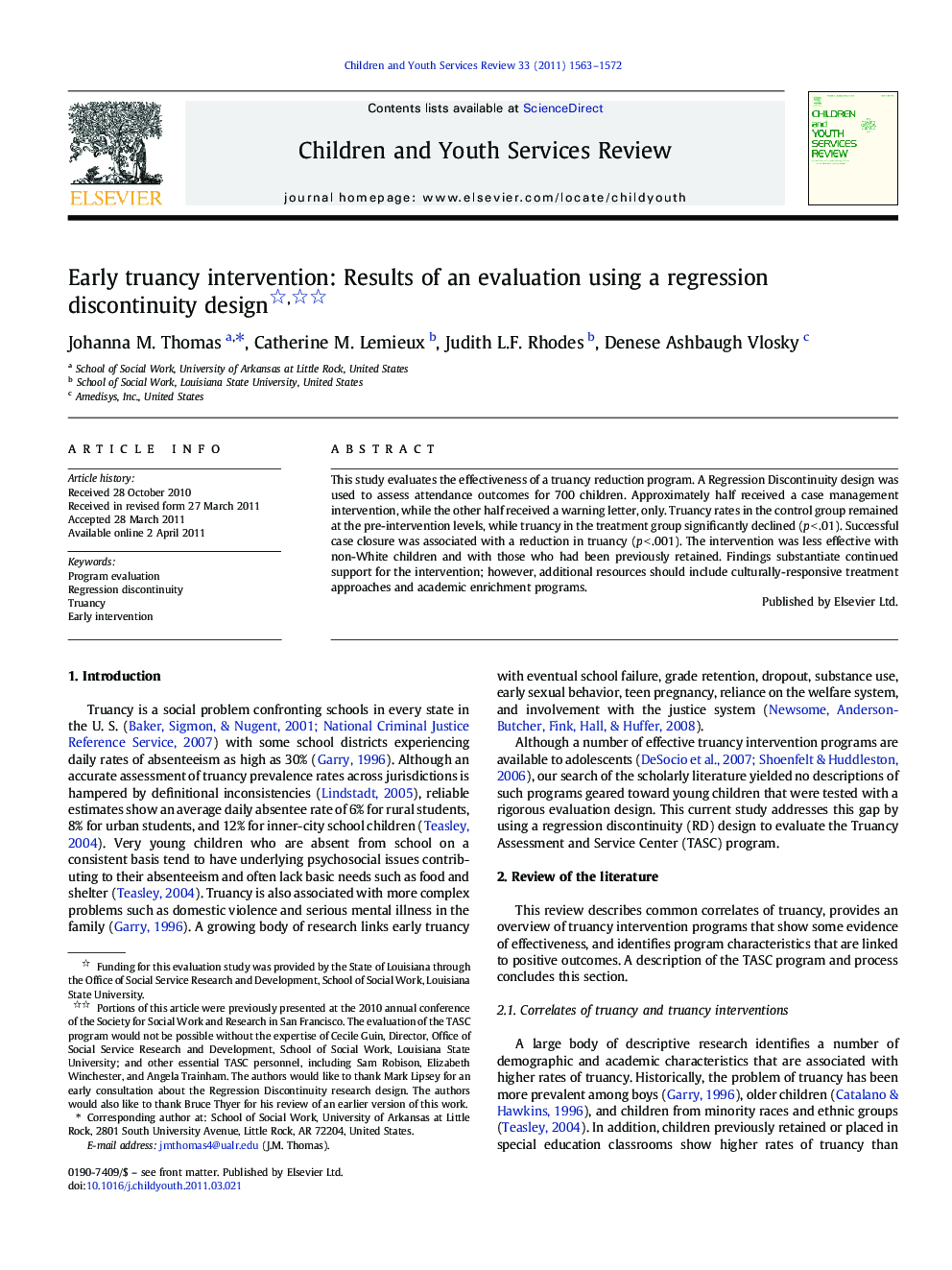| Article ID | Journal | Published Year | Pages | File Type |
|---|---|---|---|---|
| 346141 | Children and Youth Services Review | 2011 | 10 Pages |
This study evaluates the effectiveness of a truancy reduction program. A Regression Discontinuity design was used to assess attendance outcomes for 700 children. Approximately half received a case management intervention, while the other half received a warning letter, only. Truancy rates in the control group remained at the pre-intervention levels, while truancy in the treatment group significantly declined (p < .01). Successful case closure was associated with a reduction in truancy (p < .001). The intervention was less effective with non-White children and with those who had been previously retained. Findings substantiate continued support for the intervention; however, additional resources should include culturally-responsive treatment approaches and academic enrichment programs.
Research highlights► Regression Discontinuity Analysis for Truancy Program Evaluation. ► Truancy rates in the control group remained at the pre-intervention levels. ► Truancy in the treatment group significantly declined (p < .01). ► Successful case closure was associated with a reduction in truancy (p < .001). ► The intervention was less effective with non-White and previously retained children.
